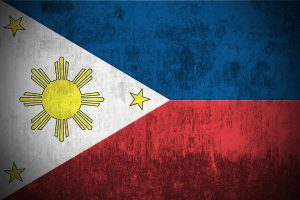Lawyers, judges, law schools, and even the Supreme Court of the Philippines have issued separate statements expressing support for a Manila judge who was vilified and threatened online for dismissing a government petition seeking to proscribe the Communist Party of the Philippines, New People’s Army, and National Democratic Front (CPP-NPA-NDF) as terrorists.
Judge Marlo Magdoza-Malagar junked the petition by relying on the evidence submitted by the Department of Justice (DOJ) in 2018. The ruling pointed out that based on the definition of terrorism under the Human Security Act, the CPP-NPA-NDF cannot be proscribed as terrorists. Their activities can be considered rebellion but none have caused “widespread and extraordinary fear and panic” among the general population.
This dealt a huge setback to the government’s anti-terrorism campaign, which aims to end one of the world’s longest communist insurgencies.
Among those who most loudly protested the court ruling was Lorraine Badoy, the former spokesperson of the National Task Force to End Local Communist Armed Conflict (NTF-Elcac). She vented her frustration on social media by accusing the judge of being a friend of armed communists. She hinted at the idea of killing the judge based on the logic that it is difficult to distinguish members and supporters of the CPP-NPA-NDF. She later denied that she threatened to cause physical harm to the judge and that she merely used a “hypothetical syllogism” to underscore her message. She accused the media and communist supporters of distorting her words.
But for many judges and lawyers who read her post, the threat of violence was clear. Hukom, an organization of trial court judges, was the first to criticize the online threats and red-tagging directed against Judge Malagar.
“These acts must be called out because of their chilling effect on the exercise of our judicial function and the lasting damage they cause to our institution,” Hukom said in a statement. “Let us not normalize the use of violence against persons as a form of redress by being silent.”
The Integrated Bar of the Philippines, the official organization of lawyers in the country, asserted that criticizing court decisions should not be accompanied by threats of violence.
“Stating rational reservations on decisions of the judiciary is normal. Attacking its members and threatening them with bodily harm is not. The judiciary’s job is to decide disputes. And no judge should ever feel threatened just performing that duty,” the group said in a statement.
It also called for the immediate activation of the Judicial Marshal Service to offer protection to court judges.
Various human rights groups, law schools, and academics issued separate statements affirming their solidarity with the judge. Around 485 lawyers signed a statement condemning the threats made by Badoy.
The Supreme Court soon issued a warning that it will penalize all those who incite violence against judges.
“The Court sternly warns those who continue to incite violence through social media and other means which endanger the lives of judges and their families, and that this shall likewise be considered a contempt of this court and will be dealt with accordingly,” the Supreme Court said in a statement.
After this, Badoy was forced to clarify her earlier post and assured the judge that she has no intention of causing harm.
It is rare for legal institutions and law schools to issue a statement aimed at countering public comments that assail court decisions. But the grave consequences of red-tagging must have jolted them into action.
Red-tagging intensified during the presidency of Rodrigo Duterte, with Badoy being the voice of the government’s aggressive campaign to demonize and destroy the communist movement. It eventually became the de facto propaganda tool of the government’s security cluster in dealing with Leftist critics, activists, and members of the opposition. There have been documented instances of how some red-tagged human rights defenders would be arrested on trumped-up criminal cases. Some became victims of extrajudicial killings, including lawyers who were accused of sympathizing with communists.
Badoy has insisted in the past that red-tagging is a term invented by Filipino Leftists. Unknowingly, she popularized the term through her notorious practice of uncritically branding activists and even ordinary citizens perceived to be supportive of communists as members and operatives of the CPP-NPA-NDF. It must be frustrating on her part to read the recent statements of various legal scholars criticizing the act of red-tagging. Perhaps Badoy can find comfort in the remarks of Duterte who asserted that no court declaration is needed to affirm that the CPP-NPA-NDF are terrorists.
On the part of the incumbent government, the DOJ said it will not appeal the case but will file a new petition in the Court of Appeals. DOJ Secretary Jesus “Crispin” Boying Remulla noted that the court ruling penned by Malagar “became a treatise on how to defend the NDF or the so-called ‘progressive movement.’”
Despite her clarification, Badoy could still face sanction from the Supreme Court. The police also reported that it is looking into the online posts threatening Judge Malagar.

































